News Archives

2025 Tom W. Bonner Prize in Nuclear Physics Recipient
The Bonner prize was established by the American Physical Society (APS) to recognize and encourage experimental research in nuclear physics, including the development of a method, technique, or device that significantly contributes to nuclear physics research. The prize was endowed in 1964 as a memorial to Tom W. Bonner by his friends, students and associates.
The recipient of the 2025 Bonner Prize is Dr. Volker Burket from Thomas Jefferson National Accelerator Facility. The citation from the American Physical Society reads
“For exemplary leadership in the development of high-performance instrumentation for large acceptance spectrometers that have enabled breakthroughs in fundamental nuclear physics through electroproduction measurements of exclusive processes.”
Dr. Burket’s research is supported by the DOE’s Office of Science, Office of Nuclear Physics.
Further information is available at https://www.aps.org/funding-recognition/prize/tom-bonner-prize

2025 Herman Feshbach Prize in Theoretical Nuclear Physics
The Herman Feshbach Prize in Theoretical Nuclear Physics was established in 2014 by the American Physical Society (APS) “To recognize and encourage experimental research in theoretical nuclear physics.” The Prize commemorates Herman Feshbach, who was a renowned Professor of Theoretical Nuclear Physics at the Massachusetts Institute of Technology (MIT) for over 50 years and served as Department Chair and Director of the MIT Center for Theoretical Physics. The Herman Feshbach Prize is supported by the APS Division of Nuclear Physics (DNP), and by the Feshbach family and friends.
The recipient of the 2025 Herman Feshbach Prize is Professor Richard Furnstahl from the Ohio State University. The citation from the American Physical Society reads
“For foundational contributions to calculations of nuclei, including applying the Similarity Renormalization Group to the nuclear force, grounding nuclear density functional theory in those forces, and using Bayesian methods to quantify the uncertainties in effective field theory predictions of nuclear observables.”
Professor Furnstahl’s research is supported by the DOE’s Office of Science, Office of Nuclear Physics.
Below is the link to the corresponding APS web site:
Feshbach Prize Theoretical Nuclear Physics | American Physical Society
2024 Norman F. Ramsey Prize in Physics
 2024 Norman F. Ramsey Prize in Atomic, Molecular and Optical Physics, and in Precision Tests of Fundamental Laws and Symmetries. Awarded annually by the American Physical Society (APS), the Ramsey Prize recognizes outstanding accomplishments in the research areas of Nobel Laureate and physicist Norman Ramsey.
2024 Norman F. Ramsey Prize in Atomic, Molecular and Optical Physics, and in Precision Tests of Fundamental Laws and Symmetries. Awarded annually by the American Physical Society (APS), the Ramsey Prize recognizes outstanding accomplishments in the research areas of Nobel Laureate and physicist Norman Ramsey.
The recipient of the 2024 Ramsey Prize is Dr. David DeMille from the University of Chicago. According to the APS announcement is being acknowledged
"For pioneering work in molecular physics, cooling, and spectroscopy that has profoundly advanced the search for the electric dipole moment of the electron, and for placing stringent constraints on modifications to the Standard Model in a tabletop experiment."
Dr. David DeMille’s research is supported by the DOE’s Office of Science, Office of Nuclear Physics (NP).
Below is the link to the corresponding APS web site:
https://www.aps.org/funding-recognition/prize/tom-bonner-prize

2024 Feshbach Prize in Theoretical Nuclear Physics
The Feshbach Prize in Theoretical Nuclear Physics was established in 2014 by the American Physical Society (APS) “To recognize and encourage outstanding research in theoretical nuclear physics.” The Prize commemorates Herman Feshbach, who was a renowned Professor of Theoretical Nuclear Physics at the Massachusetts Institute of Technology (MIT) for over 50 years and served as Department Chair and Director of the MIT Center for Theoretical Physics. The Feshbach Prize is supported by the APS Division of Nuclear Physics (DNP), and by the Feshbach family and friends.
The recipient of the 2024 Feshbach Prize is Professor Gail McLaughlin from North Carolina State University. According to the APS announcement is being acknowledged
"For seminal contributions to the study of neutrinos in explosive systems and for elucidating the profound impact of this microphysics on the synthesis of elements."
Professor McLaughlin’s research is supported by the DOE’s Office of Science, Office of Nuclear Physics (NP).
Below is the link to the corresponding APS web site:
https://www.aps.org/funding-recognition/prize/herman-feshbach-prize
Argonne hosts conference for undergraduate women in physics

Weekend-long event connects women with resources, community, information on graduate school and professionals in their field.
https://www.anl.gov/article/argonne-hosts-conference-for-undergraduate-women-in-physics
2023 Tom W. Bonner Prize in Nuclear Physics

Professor Jen-Chieh Peng
2023 Tom W. Bonner Prize in Nuclear Physics Recipient
The Bonner prize was established by the American Physical Society (APS) to recognize and encourage outstanding research in nuclear physics, including the development of a method, technique, or device that significantly contributes in a general way to nuclear physics research. The prize was endowed in 1964 as a memorial to Tom W. Bonner by his friends, students and associates.
The recipient of the 2023 Bonner Prize is Professor Jen-Chieh Peng According to the APS announcement is being acknowledged "For pioneering work on studying antiquark distributions in the nucleons and nuclei using the Drell-Yan process as an experimental tool, and for seminal work on elucidating the origins of the flavor asymmetries of the light-quark sea in the nucleons."
Professor Peng’s research is supported by the DOE’s Office of Science, Office of Nuclear Physics (NP).
Below is the link to the corresponding APS website:
Office of Science Achievement Award for 2022 Presented to The Facility for Rare Isotope Beams (FRIB)

Designed to be the most powerful heavy-ion accelerator, FRIB enables scientists to make discoveries about the properties of short-lived nuclei not commonly found on Earth known as rare isotopes with implications in nuclear astrophysics, fundamental interactions, and with applications for society, including in medicine, homeland security, and industry.
Consisting of a four-building complex that extends 32 feet underground joined to an underground tunnel 570 feet long, 70 feet wide, and 13 feet high housing a superconducting linear accelerator capable of delivering a 400 kW at beam energies in excess of 200 MeV/nucleon, this Office of Science User Facility, with an active user community of over 1,800, accelerates beams comprised of stable atomic nuclei from hydrogen to uranium to half the speed of light which following collision with a thin target material creates reaction products including the rare isotopes requested by experimenters. A fragment separator uses 13 superconducting magnet elements to select isotopes and sends them to the experimental area where detectors measure their unique properties or interaction with other nuclei.
The project team is commended for their ingenuity and outstanding planning to successfully complete the project within budget and on schedule. FRIB is a proud and extraordinary achievement for DOE and the Nation.
2022 Tom W. Bonner Prize in Nuclear Physics
Professor David W. Hertzog
2022 Tom W. Bonner Prize in Nuclear Physics Recipient
The Bonner prize was established by the American Physical Society (APS) to recognize and encourage outstanding research in nuclear physics, including the development of a method, technique, or device that significantly contributes in a general way to nuclear physics research. The prize was endowed in 1964 as a memorial to Tom W. Bonner by his friends, students and associates.
The recipient of the 2022 Bonner Prize is Professor David W. Hertzog According to the APS announcement is being acknowledged
"For advancing the frontiers of understanding nature's fundamental symmetries via unprecedented precision studies of the muon, including its lifetime, its anomalous magnetic moment, and its measurement by the pseudoscalar coupling constant."
Professor Hertzog’s research is supported by the DOE’s Office of Science, Office of Nuclear Physics (NP).
Below is the link to the corresponding APS website:
2022 Feshbach Prize in Theoretical Nuclear Physics
Professor David B. Kaplan
The Feshbach Prize in Theoretical Nuclear Physics was established in 2014 by the American Physical Society (APS) “To recognize and encourage outstanding research in theoretical nuclear physics.” The Prize commemorates Herman Feshbach, who was a renowned Professor of Theoretical Nuclear Physics at the Massachusetts Institute of Technology (MIT) for over 50 years, and served as Department Chair and Director of the MIT Center for Theoretical Physics. The Feshbach Prize is supported by the APS Division of Nuclear Physics (DNP), and by the Feshbach family and friends.
The recipient of the 2022 Feshbach Prize is Professor David B. Kaplan Institute for Nuclear Theory. According to the APS announcement is being acknowledged
"For multiple foundational innovations in nuclear theory, including in lattice quantum chromodynamics, effective field theories, and nuclear strangeness, and for strategic leadership to broaden participation between nuclear theory and other fields."
Professor Kaplan’s research is supported by the DOE’s Office of Science, Office of Nuclear Physics (NP).
Below is the link to the corresponding APS website:
2021 Tom W. Bonner Prize in Nuclear Physics Recipient
Professor Geoffrey L. Greene
The Bonner prize was established by the American Physical Society (APS) to recognize and encourage outstanding research in nuclear physics, including the development of a method, technique, or device that significantly contributes in a general way to nuclear physics research. The prize was endowed in 1964 as a memorial to Tom W. Bonner by his friends, students and associates.
The recipient of the 2021 Bonner Prize is Professor Geoffrey L. Greene. According to the APS announcement is being acknowledged
"For foundational work establishing the field of fundamental neutron physics in the US, for developing experimental techniques for in-beam measurements of the neutron lifetime and other experiments, and for realizing a facility for the next generation of fundamental neutron physics measurements."
Professor Greene’s research is supported by the DOE’s Office of Science, Office of Nuclear Physics (NP).
2021 Feshbach Prize in Theoretical Nuclear Physics
Professor Berndt Mueller
The Feshbach Prize in Theoretical Nuclear Physics was established in 2014 by the American Physical Society (APS) “To recognize and encourage outstanding research in theoretical nuclear physics.” The Prize commemorates Herman Feshbach, who was a renowned Professor of Theoretical Nuclear Physics at the Massachusetts Institute of Technology (MIT) for over 50 years, and served as Department Chair and Director of the MIT Center for Theoretical Physics. The Feshbach Prize is supported by the APS Division of Nuclear Physics (DNP), and by the Feshbach family and friends.
The recipient of the 2021 Feshbach Prize is Professor Berndt Mueller Duke University; Brookhaven National Laboratory. According to the APS announcement is being acknowledged
"For seminal theoretical contributions to the identification of quark-gluon plasma signatures, focused on predictions of hadronic observables of the partonic state that inform the understanding of thermalization, fluctuations, flow observables, and hadronic spectra."
Professor Mueller’s research is supported by the DOE’s Office of Science, Office of Nuclear Physics (NP).
2020 Tom W. Bonner Prize in Nuclear Physics Recipient

Professor Richard Milner
The Bonner prize was established by the American Physical Society (APS) to recognize and encourage outstanding research in nuclear physics, including the development of a method, technique, or device that significantly contributes in a general way to nuclear physics research. The prize was endowed in 1964 as a memorial to Tom W. Bonner by his friends, students and associates.
The recipient of the 2020 Bonner Prize is Professor Richard Milner of Massachusetts Institute of Technology. According to the APS announcement is being acknowledged "For pioneering work developing and using polarized internal targets in storage rings and his leadership role in studying the structure of the nucleon in a wide range of electronuclear experiments."
Professor Milner’s research is supported by the DOE’s Office of Science, Office of Nuclear Physics (NP).
2020 Feshbach Prize in Theoretical Nuclear Physics

Professor van Kolck
The Feshbach Prize in Theoretical Nuclear Physics was established in 2014 by the American Physical Society (APS) “To recognize and encourage outstanding research in theoretical nuclear physics.” The Prize commemorates Herman Feshbach, who was a renowned Professor of Theoretical Nuclear Physics at the Massachusetts Institute of Technology (MIT) for over 50 years, and served as Department Chair and Director of the MIT Center for Theoretical Physics. The Feshbach Prize is supported by the APS Division of Nuclear Physics (DNP), and by the Feshbach family and friends.
The recipient of the 2020 Feshbach Prize is Professor Ubirajara van Kolck, University of Arizona. According to the APS announcement, Professor van Kolck is being acknowledged "For pioneering contributions to effective field theories of nuclear systems, which have transformed low-energy nuclear theory."
Professor van Kolck’s research is supported by the DOE’s Office of Science, Office of Nuclear Physics (NP).
2019 Tom W. Bonner Prize in Nuclear Physics Recipient

Barbara V. Jacak
The Bonner prize was established by the American Physical Society (APS) to recognize and encourage outstanding research in nuclear physics, including the development of a method, technique, or device that significantly contributes in a general way to nuclear physics research. The prize was endowed in 1964 as a memorial to Tom W. Bonner by his friends, students and associates.
The recipient of the 2019 Bonner Prize is Professor Barbara V. Jacak of the Lawrence Berkeley National Laboratory, University of California, Berkeley according to the APS announcement is being acknowledged.
"For her leadership in the discovery and characterization of the quark-gluon plasma, in particular for her contributions to the PHENIX experiment and its explorations of jets as probes."
Further information is available at https://www.aps.org/programs/honors/prizes/prizerecipient.cfm?first_nm=Barbara&last_nm=Jacak&year=2019
Barry R. Holstein (University of Massachusetts) Awarded Feshbach Prize
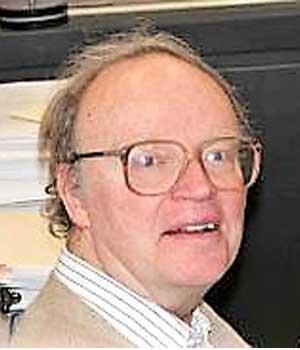
Barry R. Holstein
The Feshbach Prize in Theoretical Nuclear Physics was established in 2014 by the American Physical Society (APS) “To recognize and encourage outstanding research in theoretical nuclear physics.” The Prize commemorates Herman Feshbach, who was a renowned Professor of Theoretical Nuclear Physics at the Massachusetts Institute of Technology (MIT) for over 50 years, and served as Department Chair and Director of the MIT Center for Theoretical Physics. The Feshbach Prize is supported by the APS Division of Nuclear Physics (DNP), and by the Feshbach family and friends.
The recipient of the 2019 Feshbach Prize is Professor Barry R. Holstein, University of Massachusetts, Amherst. According to the APS announcement, Professor Holstein is being acknowledged
"For seminal theoretical studies of fundamental symmetries in nuclei, including radioactive nuclear decays, parity-violating nucleon-nucleon interactions, and chiral dynamics of mesons and baryons."
Professor Holstein’s research is supported by the DOE’s Office of Science, Office of Nuclear Physics (NP).
Below is the link to the corresponding APS web site:
2018 Tom W. Bonner Prize in Nuclear Physics Recipient
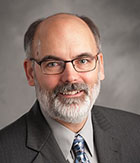
Bradley M. Sherrill
The Bonner prize was established by the American Physical Society (APS) to recognize and encourage outstanding research in nuclear physics, including the development of a method, technique, or device that significantly contributes in a general way to nuclear physics research. The prize was endowed in 1964 as a memorial to Tom W. Bonner by his friends, students and associates.
The recipient of the 2018 Bonner Prize is Professor Bradley M. Sherrill of the National Superconducting Cyclotron Laboratory at Michigan State University according to the APS announcement is being acknowledged.
"For his scientific leadership in the development and utilization of instruments and techniques of discovery and exploration of exotic nuclei, and for his community leadership in elucidating the physics of rare isotope beams and advancing the realization of the Facility for Rare Isotope Beams facility."
Further information is available at http://www.aps.org/programs/honors/prizes/prizerecipient.cfm?last_nm=Sherrill&first_nm=Bradley&year=2018
Edward Shuryak (Stony Brook University) Awarded Feshbach Prize
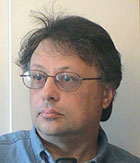
Edward Shuryak
The Feshbach Prize in Theoretical Nuclear Physics was established in 2014 by the American Physical Society (APS) “To recognize and encourage outstanding research in theoretical nuclear physics.” The Prize commemorates Herman Feshbach, who was a renowned Professor of Theoretical Nuclear Physics at the Massachusetts Institute of Technology (MIT) for over 50 years, and served as Department Chair and Director of the MIT Center for Theoretical Physics. The Feshbach Prize is supported by the APS Division of Nuclear Physics (DNP), and by the Feshbach family and friends.
The recipient of the 2018 Feshbach Prize is Professor Edward Shuryak of Stony Brook University. According to the APS announcement, Professor Shuryak is being acknowledged
"For pioneering contributions to the understanding of strongly interacting matter under extreme conditions, and for establishing the foundations of the theory of quark-gluon plasma and its hydrodynamical behavior."
Professor Shuryak’s research is supported by the DOE’s Office of Science, Office of Nuclear Physics (NP).
Below is the link to the corresponding APS web site:
2017 Tom W. Bonner Prize in Nuclear Physics Recipient
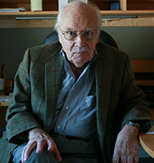
Charles F. Perdrisat
The Bonner prize was established by the American Physical Society (APS) to recognize and encourage outstanding research in nuclear physics, including the development of a method, technique, or device that significantly contributes in a general way to nuclear physics research. The prize was endowed in 1964 as a memorial to Tom W. Bonner by his friends, students and associates.
The recipient of the 2017 Bonner Prize is Charles F. Perdrisat of College of William and Mary according to the APS announcement is being acknowledged.
"For groundbreaking measurements of nucleon structure, and discovering the unexpected behavior of the magnetic and electric nucleon form factors with changing momentum transfer."
Further information is available at http://www.aps.org/programs/honors/prizes/bonner.cfm.
2016 Tom W. Bonner Prize in Nuclear Physics Recipient
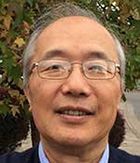
I-Yang Lee
The Bonner prize was established by the American Physical Society (APS) to recognize and encourage outstanding research in nuclear physics, including the development of a method, technique, or device that significantly contributes in a general way to nuclear physics research. The prize was endowed in 1964 as a memorial to Tom W. Bonner by his friends, students and associates.
The recipient of the 2016 Bonner Prize is I-Yang Lee of the Lawrence Berkeley National Laboratory according to the APS announcement is being acknowledged.
"For seminal contributions to the field of nuclear structure through the development of advanced gamma-ray detectors as realized in the Gammasphere device, and for pioneering work on gamma-ray energy tracking detectors demonstrated by the Gamma-ray Energy Tracking Array (GRETINA)."
Further information is available at http://www.aps.org/programs/honors/prizes/bonner.cfm.
2016 Feshbach Prize Awarded

Xiangdong Ji
The Feshbach Prize in Theoretical Nuclear Physics was established in 2014 by the American Physical Society (APS) “To recognize and encourage outstanding research in theoretical nuclear physics.” The Prize commemorates Herman Feshbach, who was a renowned Professor of Theoretical Nuclear Physics at the Massachusetts Institute of Technology (MIT) for over 50 years, and served as Department Chair and Director of the MIT Center for Theoretical Physics. The Feshbach Prize is supported by the APS Division of Nuclear Physics (DNP), and by the Feshbach family and friends.
The recipient of the 2016 Feshbach Prize is Professor Xiangdong Ji of the University of Maryland. According to the APS announcement, Professor Ji is being acknowledged
For pioneering work in developing tools to characterize the structure of the nucleon within QCD and for showing how its properties can be probed through experiments; this work not only illuminates the nucleon theoretically but also acts as a driver of experimental programs worldwide.
Professor Ji’s research is supported by the DOE’s Office of Science, Office of Nuclear Physics (NP).
Further information is available at American Physical Society.
Announcement of planned new 2017 SciDAC Awards for Computational Nuclear Physics
The Office of Nuclear Physics (NP) and the Office of Advanced Scientific Computing Research (ASCR) of the US Department of Energy’s Office of Science (DOE SC) are pleased to announce that they plan to support the following five-year computational nuclear physics projects under the computational science program “Scientific Discovery through Advanced Computing” (SciDAC4).
-
Nuclear Computational Low Energy Initiative
PI Joseph Carlson (LANL)
Computing the Properties of Matter with Leadership Computing ResourcesPI Robert Edwards (TJNAF)
Towards Exascale Astrophysics of Mergers and SupernovaePI William Raphael Hix (ORNL)
Each of these SciDAC projects is a collaboration between scientists and computational experts at multiple national laboratories and universities, who combine their talents in science and computing to address a selected set of high-priority problems at the leading edge of research in nuclear physics, using the very powerful Leadership Class High Performance Computing (HPC) facilities available now and anticipated in the near future (for example, the Summit computer at Oak Ridge National Laboratory).
The general areas addressed by these projects are 1) calculations of the properties of nuclei, their structure, reactions, interactions and decays, using state-of-the-art models and numerical techniques; 2) the properties of strongly-interacting particles (hadrons) composed of quarks and gluons, as predicted by the fundamental theory QCD, studied computationally on a space-time lattice; and 3) computational nuclear astrophysics, including the synthesis of the heavier elements in cataclysmic events such as supernovae and neutron star mergers, and the prediction of multiple observable effects including the generation of gravitational waves. Each project stresses the goal of calculating quantities that will be studied concurrently in experiments at DOE NP facilities.
Announcement on the selection of Topical Collaborations in Nuclear Theory recommended for funding
The Office of Nuclear Physics (NP), on the basis of a peer review, has selected the following Topical Collaborations (to start in FY 2016) for funding recommendation








